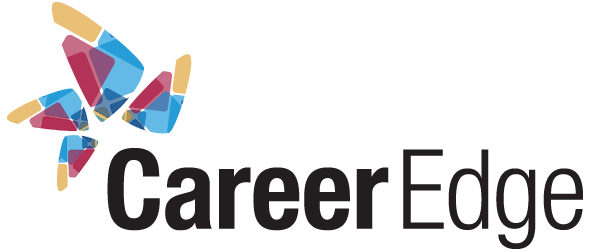In Canada, the democratic process is protected not just as a right but as an opportunity that employers must accommodate. This comprehensive guide explains everything Canadian employers and employees need to know about voting rights in the workplace, regardless of employment status or election cycle.
Understanding Your Legal Right to Vote
The Canada Elections Act guarantees that eligible voters must have three consecutive hours available to vote during polling hours. If your work schedule doesn’t allow for these three consecutive hours, your employer is legally required to provide time off.
The Three-Hour Rule Explained
- The Calculation: Polling hours vary by time zone. Your employer must ensure you have three consecutive hours available during local polling hours.
- Example: If polls are open from 8:30 a.m. to 8:30 p.m. and you work 9:00 a.m. to 5:00 p.m., you already have more than three consecutive hours available after work (5:00 p.m. to 8:30 p.m.). Your employer is not required to provide additional time.
- Example: If you work 10:00 a.m. to 7:00 p.m., you don’t have three consecutive hours either before or after work. Your employer must adjust your schedule to provide these hours.
Provincial Variations
| Province |
Specific Requirements |
Notable Differences |
| Federal Elections |
3 consecutive hours |
Applies nationwide |
| Ontario |
3 consecutive hours |
Consistent with federal requirements |
| Quebec |
4 consecutive hours |
More generous than the federal standard |
| British Columbia |
4 consecutive hours |
More generous than the federal standard |
| Alberta |
3 consecutive hours |
Consistent with federal requirements |
Paid vs. Unpaid Time Off
Employers cannot deduct pay or impose penalties for time off granted for voting. This applies to all employees, including:
- Full-time employees
- Part-time employees
- Casual workers
- Interns (both paid and unpaid)
- Temporary workers
Employer Responsibilities
Can employers encourage employees to vote?
Absolutely! While employers should not tell employees who to vote for, it is good to encourage employees to exercise their right to vote. But remember to stay completely neutral in your messaging. Even if a particular political party is favourable to your organization, it is not right for an employer to use their authority to impose their political beliefs on employees.
Employers must:
- Be Proactive: Know when elections are scheduled
- Plan Ahead: Adjust schedules in advance when possible
- Accommodate Fairly: Give time off at the employer’s convenience
- Maintain Records: Document accommodations provided
- Never Penalize: No reduced pay or other penalties
Employee Rights and Responsibilities
While many working Canadians are familiar with voting and the election process, it can be a bit of a mystery to many, especially youth who are first-time voters or people who are new to the Canadian workforce.
For immigrants who are Canadian citizens, this upcoming election may be the first opportunity they will have to vote in Canada. These employees might come from societies where voters’ rights are not recognized in the same way as they are in Canada, or they may be unfamiliar with our system. Recent graduates may be familiar with voting, but less familiar with the rules of the workplace.
If your organization has people who are new to the Canadian workplace and may be voting for the first time, ensure they understand their rights under the Canada Elections Act and know where to access information about where and how to vote. Click here for more tips for first-time voters
Employees should:
- Know the Rules: Understand your voting rights
- Plan Ahead: Request time off in advance when needed
- Be Reasonable: Consider early voting options when available
- Document Conversations: Keep records of accommodation requests
- Report Violations: Know how to file complaints if rights are violated
Do Employees get time off work to vote?
This is one of the most common questions. The answer is yes. And no.
According to the Canada Elections Act:
“Every voter is entitled to have three consecutive hours in which to vote. Employers whose employees have three consecutive hours of their own time available during polling hours need not allow additional time for voting. If, however, an employee does not have this time available, it is stressed that the amount of time required:
- must be requested by the employee,
- is at a time convenient to the employer, and
- once requested by the employee, must be allowed by the employer.”
In other words, if polling stations are open until 8:30 p.m. and your employee finishes work at 5:30 p.m., then he or she would have 3 hours to vote during their own time. But if they face a one-hour commute home to their polling station after work, then they are left with two hours to vote—meaning the employee may request to leave an hour early.
Voters with Disabilities
For persons with disabilities, accessing polling stations might be more challenging if there are barriers along the way. For this reason, they may require additional time to get to and from polling stations. It’s important to let people with disabilities know that there are now three ways to vote: by special ballot, at an advance poll, or on polling day. The special ballot allows Canadians to vote by mail or in person at the office of their returning officer. By law, polling stations must have level access, and in the rare cases where they do not, transfer certificates are available so that electors with disabilities can use a different polling station that is accessible to them. Click here for more information about Persons with Disabilities and Canada’s Electoral Systems
Alternative Voting Methods
Beyond election day voting, Canadians can also:
- Vote at advance polls
- Vote by mail
- Vote at Elections Canada offices
Legal Precedents
Several vital cases have reinforced workplace voting rights:
- Smith v. Retail Corp (2015): Established that “at the employer’s convenience” cannot be used to effectively deny time off
- Workforce Alliance v. Manufacturing Inc. (2018): Clarified that paid time off applies even to piece-work and commission-based employees
- Provincial Variations Case Study (2019): Addressed conflicts between provincial and federal requirements
FAQs
For Employers
Q: Can I ask employees to use vacation time to vote?
A: No, voting time is a separate legal entitlement.
Q: Do I need to provide time off if the employee could vote during advance polls?
A: Yes, the right applies to election day regardless of advance polling options.
Q: What documentation should I keep regarding voting time accommodations?
A: Record requests, approved schedule adjustments, and any relevant communications.
For Employees
Q: Can my employer decide when I take time off to vote?
A: Yes, the time off is granted at the employer’s convenience, but they must ensure you have the required consecutive hours.
Q: What if I work multiple part-time jobs?
A: Each employer has an independent obligation to provide time off if needed.
Q: What should I do if my employer refuses time off to vote?
A: Document the refusal and contact Elections Canada or your provincial electoral body.
Additional Resources
* Updates and Amendments: This guide is regularly updated to reflect the most current legislation. Last reviewed: May 2025






